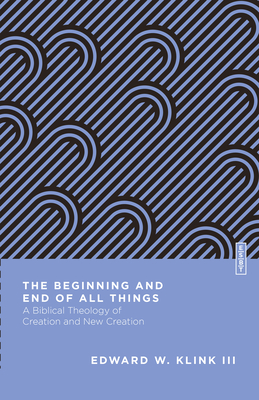What do you think?
Rate this book


200 pages, Paperback
Published May 30, 2023
While there is some biblical wiggle room for us to disagree about how God created the world, we better not misunderstand who God is and who humanity was designed to be, or what God intended to do in the world, ultimately through the work and person Jesus Christ, or why God made the world in a way that explains my life and purpose in the world. In short, if we misread the beginning of the story, we potentially misread the rest of the story. And since this story is about the Creator and his creation, the stakes could not be higher.
Every time the term creation or even doctrine of creation was used, the Christians in my church were thinking of origins. It was as if the only category the term creation would elicit in their minds was the beginning of time when the world came into existence. The only question was about what happened in the beginning, and even then, the primary focus was clearly on the heavily debated “six days” The rest of the history of the world, the physical reality in which we live our lives, or even the purposes for which the world was created were not even part of the equation. It seemed to me to be like a man who, when asked about his marriage, was unable to think of anything else besides his wedding ceremony. His love and commitment to his wife, the purpose and design of marriage, and even the current state of his marriage and the family it produced were viewed as distinct or unrelated. My point is not to deny the importance of the first six days of creation but to make important every created day.
...Creation was good but not yet finished to perfection. Again, quoting Gunton: “As created, it is perfect, because it is God's project. . . . But it is not pertest in the sense of completion. It has somewhere to go" To be clear, this is eschatology. Not in the sense of the last few years of human history (the end times) but the entirety of human history. Eschatology, therefore, is referring to God’s goal or purpose for creation, his ordained intention and the plot of the world. Thus, eschatology 1s the aim of trajectory of all things, the goal of all things. Our argument in this chapter—and the book as a whole has been that the biblical stary of creation and new creation, which includes redemption, is a biblical theology of the goal of all things. The use of etymology for defining eschatology (the study of the end times) should be banned by royal decree! Eschatology ts only tangentially defined by interpretive questions regarding a millennium, let alone a rapture. Simply stated, eschatology is referring to the intentions of God for the world, even the will of God. Eschatology, which extends from creation to new creation, is the goal of all things.
...the Christian life is not merely a spiritual life but a physical life—a life lived in creation and in relation to the Creator. If Christians are united to their Creator in Christ and through the Spirit, then they should be the most aware of their physical existence and createdness. A few examples might be helpful. First, Christians should have a robust theory and practice of the human body and reflect God’s concern for its purpose and care. Second, Christians should be both aware of and concerned for physical creation, especially the earth, which is a gift from God that he both created and will re-create.”' Both of these topics, however, have been minimized or manipulated by too many Christians for too long. This is not only detrimental to the church's witness but also to the fullness of its life. In a world filled with creatures who neither know or submit to their Creator, Christians should reflect in word and deed the beauty, awe, and affection of the mystery of creation that is reflective of the new life they have been given by their Creator and Redeemer. Psalm 104 (especially Ps 104:24, 30, 33) provides us with a lens for our appreciation of the physical world and, therefore, the honor and praise due to our Creator.